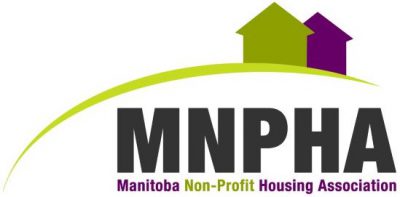The Manitoba Non-Profit Housing Association congratulates the federal and provincial governments for their historic announcement of a 10-year agreement to invest in affordable housing in Manitoba. The 10-year agreement will invest almost $450.8 million to protect, renew and expand social and community housing, and support Manitoba’s priorities related to housing repair, construction, and affordability.
This announcement will ensure ongoing funding commitments to the community housing sector over the next 10 years, however, it is critical to understand the details of the announcement and the changes it will mean for affordable and subsidized housing. The funding attached to this agreement is connected to three streams:
- Provincial/Territorial Priority Funding: This replaces the Affordable Housing Initiative and will be available for housing development and renewal.
- The Canada Housing Benefit: Details of this funding are still being developed and the amount is not yet included in the bi-lateral agreement. Manitoba’s Rent Assist program provides a much larger and more accessible benefit than the Canada Housing Benefit could. The Canada Housing Benefit will only provide approximately $7m/year to Manitoba (compared with Rent Assist’s $30,000,000/year budget).
- The Canada Community Housing Initiative: This funding is the equivalent of what would otherwise expire as operating agreements end. It is the largest contribution to the agreement, and, depending on how it is spent, could maintain existing rent subsidy needs for community and public housing. Though it temporarily maintains critical funding to preserve affordable housing, Government has not committed to extending it past 10-years, meaning MB Housing and the Community Housing Sector will essentially need to plan for housing to be self-sustaining after the 10-year agreement.
The National Housing Strategy and the Bilateral Agreement are cause for optimism. The funding will prevent major and immediate crises in housing need for the lowest income Manitobans, but there is cause for concern:
- While there is a target to increase the number of ‘rent assisted’ units in Manitoba by 15% over ten years, the definition of ‘rent assisted’ is not clear. It may mean simply ‘below market’ rent. It has been made clear that this agreement will NOT result in a significant increase in new construction of units affordable to the lowest-income households.
- While many non-profits will be self-sufficient after their operating agreements end, this is not the case for all of them. Many housing projects were developed to provide the most housing to the lowest income people possible – 100 percent of the units are rent-geared-to-income. To be self-sufficient, they will need to raise rents substantially.
Housing, like health care and education, is a public good that needs ongoing public investment if we want Manitoba to be an inclusive province where people have equitable opportunities to participate in our communities and economy. The idea that public investment will not be required after 10-years is simply incompatible with a right to housing.
Information provided by David Hulchanski (through analysis of data from the Parliamentary Budget Office) shows that Federal investments in housing as a percentage of total expenditures continue to trend down. You can read insights on the impact of the National Housing Strategy in Manitoba from Dr. Hulchanski, Dr. Tom Carter, and Dr. Sarah Cooper in the summary of the panel they joined at MNPHA’s Annual General Meeting in June.
It is more important than ever for MNPHA members to work together in the upcoming Provincial and Federal elections to let their candidates know that housing matters to Manitobans, and more long-term funding is needed.

Recent Comments